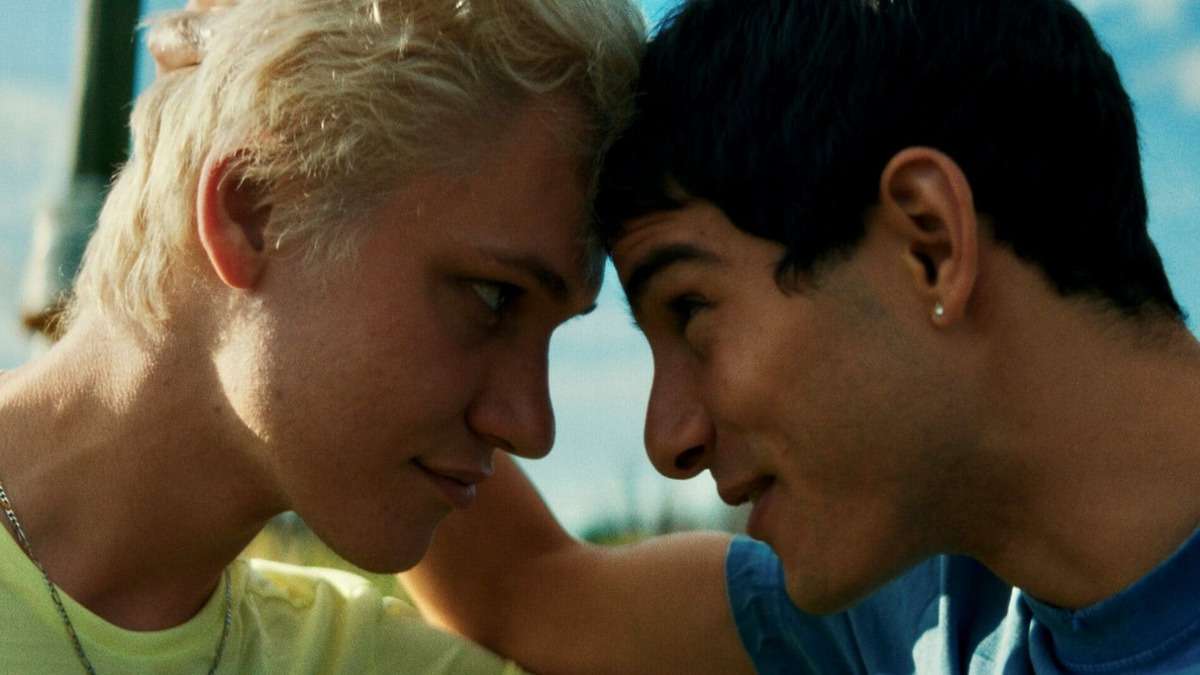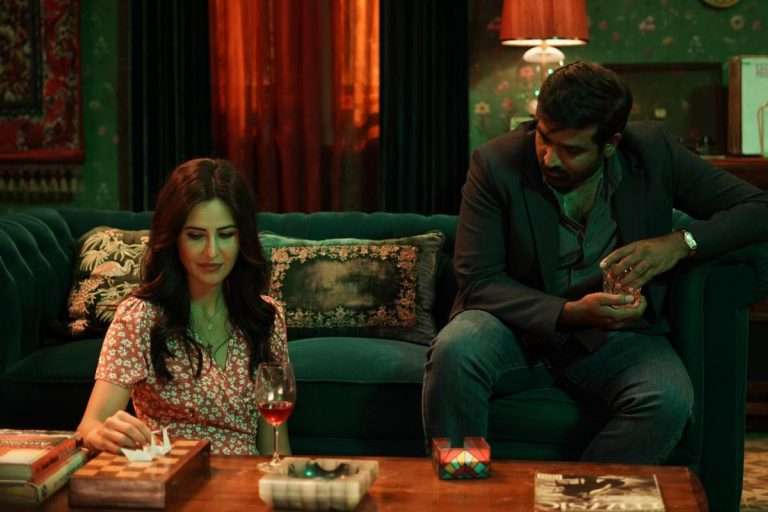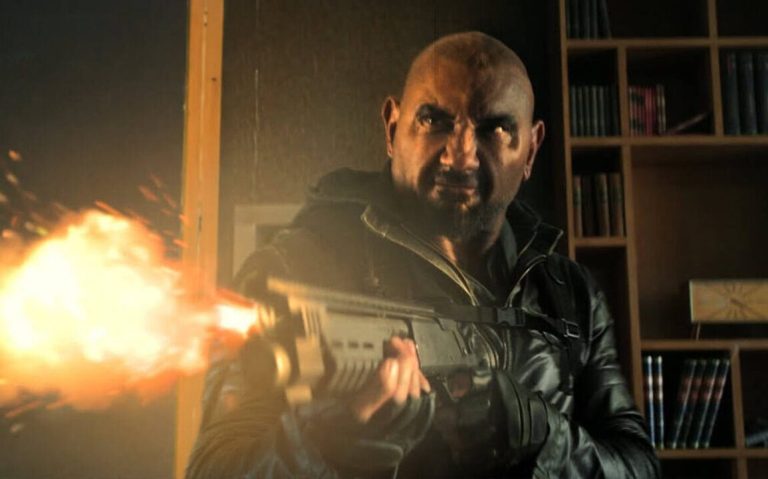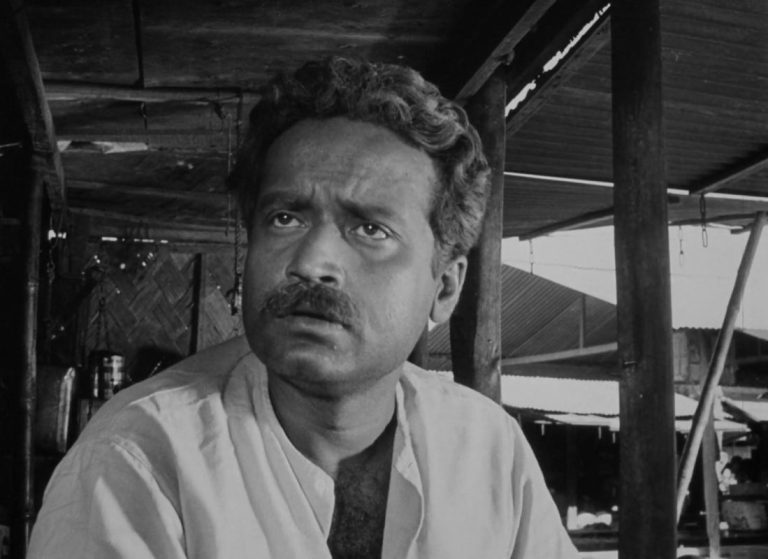Antoine Chevrollier’s “Block Pass” happens largely at and around the Pampa, a motocross track in the suburbs of France. The film revolves around two teenagers, Willy (played by Sayyid El Alami) & Jojo (played by Amaury Foucher), who are on the cusp of adulthood. These childhood friends spend the majority of their time together. They share each other’s joys, celebrate, and cheer each other. Like their fathers, they are also deeply invested in the sport of motocross racing.
Willy lost his father at a young age. After that, his mother (played by Florence Janas) took care of him and his younger sister. Despite a while having passed by, Willy hasn’t moved on from his father’s loss. Regardless, his mother needs to take their material needs into consideration beyond the emotional. It leads to their occasional arguments that often result because of Willy’s unresolved emotions. Nonetheless, he uses racing as a tool of expression and sees Jojo’s friendship as a source of comfort.
Jojo’s father (played by Damien Bonnard) guides Willy and Jojo through their racing practices. He is particularly demanding of his son on the motocross. For Jojo’s father, Jojo’s win in the upcoming tournament is a matter of collective pride and dignity. So, he pushes Jojo to work harder. While being with Jojo during these sessions, Willy accidentally realizes Jojo’s secret. He worries why Jojo didn’t open up to him about it before. Nevertheless, he doesn’t let it affect their friendship even in the slightest.
Throughout the film, we see Willy as a non-judgemental and emotionally available young adult. He understands the boundaries of sexual relationships and values them. Besides, he doesn’t stoop low to be sexist like some of his peers. But he has a hard time accepting a life without his father. He remains stuck in the memories of the lost past and hasn’t matured enough to accept the present.

On the other hand, Jojo isn’t honest about his identity. Be it due to external pressure or an internal fear of rejection, he always has to live with his secret. Yet, circumstances beyond his control make him question his existence. As the title suggests, he and Willy need to face such obstructions in their paths. They hope to face their fear of shame, rebel against things, and take action to get past their misery. Bérénice Bocquillon, Antoine Chevrollier, and Faïza Guène’s screenplay addresses these potent themes and their importance on their way to adulthood.
“Block Pass” puts focus on the ruggedness of racing on muddy tracks to contrast with its delicate themes. It highlights the need for honest expression that gets buried under the burden of responsibilities and the machismo-driven performative attitude. Although the film is sincere in its intent, it occasionally resorts to some clichéd, troubling representations that could have been easily avoided. There have already been enough dramatized depictions of ostracization and dehumanization of certain communities. So, the regressive attitude of some of the film’s characters could have been handled and explored much better.
Still, “Block Pass” strongly resonates for a couple of reasons. The film’s strongest suit is the acting performances by Sayyid El Alami and Florence Janas. They are exceptional as two people trying to fight the unavoidable odds while trying to coexist emotionally. We rarely see them getting along well. But the script neatly deals with these complications without letting them turn into needlessly polarising depictions.
Sayyid El Alami embodies Willy’s teenage angst, frustration, and innocence. He also portrays Willy’s realization of a lack of control over the matters from his life remarkably well. Furthermore, Florence Janas is magnificent as a single mother who struggles to share her concerns through words but has earnest intentions. Besides the psychological character-driven drama, “Block Pass” is also stimulating because of its exciting racing scenes, even within the film’s relatively low-key setting.
Block Pass is a part of the 2024 Cannes Film Festival.



![The Wind [2019] Review: A Menacing Portrait of Isolation](https://79468c92.delivery.rocketcdn.me/wp-content/uploads/2019/07/the-wind-1-768x432.jpg)

![The Cremator (Spalovac mrtvol) [1969] Review: A Macabre Masterpiece](https://79468c92.delivery.rocketcdn.me/wp-content/uploads/2019/10/cremator-screenshot-1-768x464.jpg)

![Helmet [2021] Review: A Film on a Serious Issue; But Too Blunt to be Taken Seriously](https://79468c92.delivery.rocketcdn.me/wp-content/uploads/2021/09/Helmet-Zee5-Review-1-768x432.jpg)